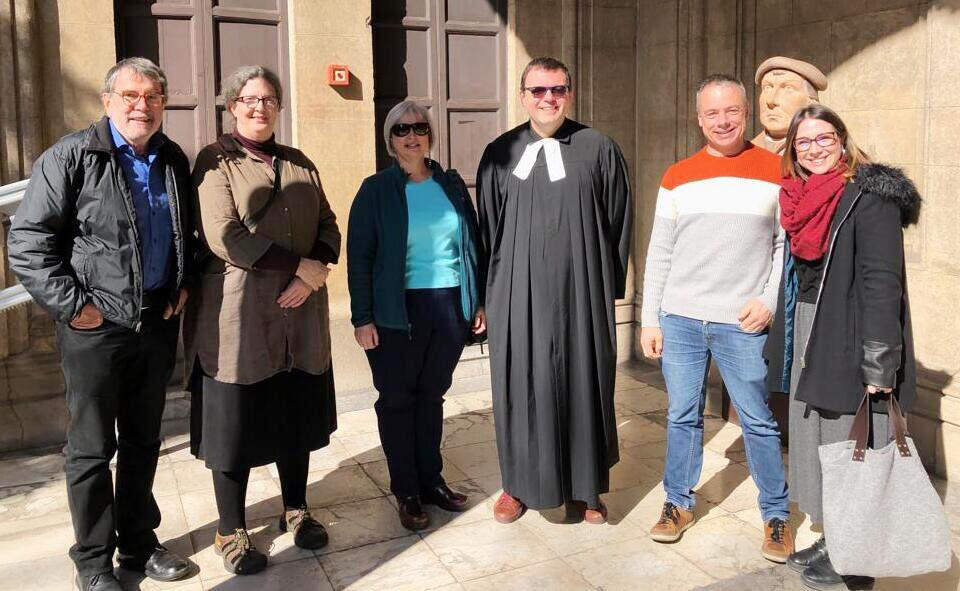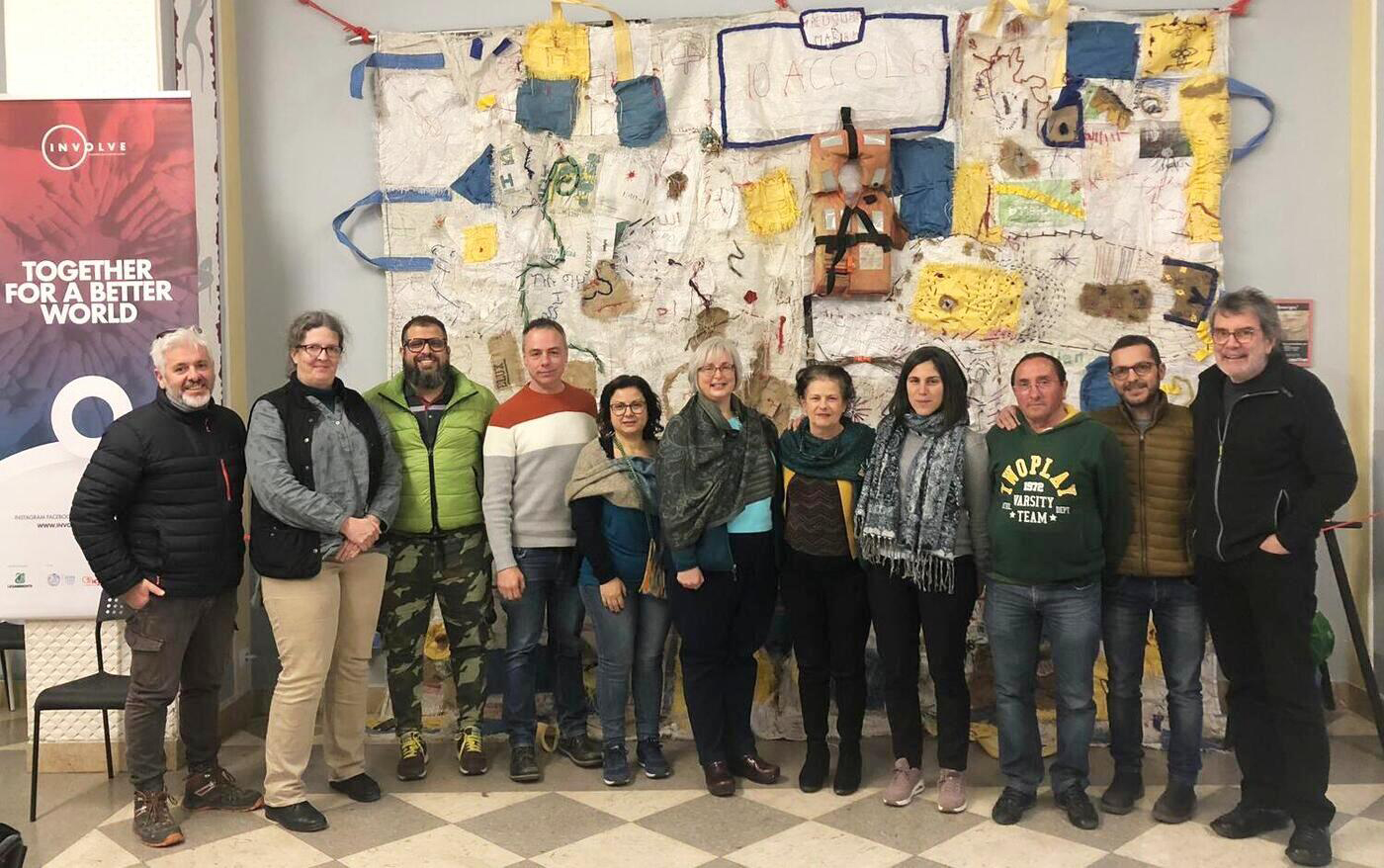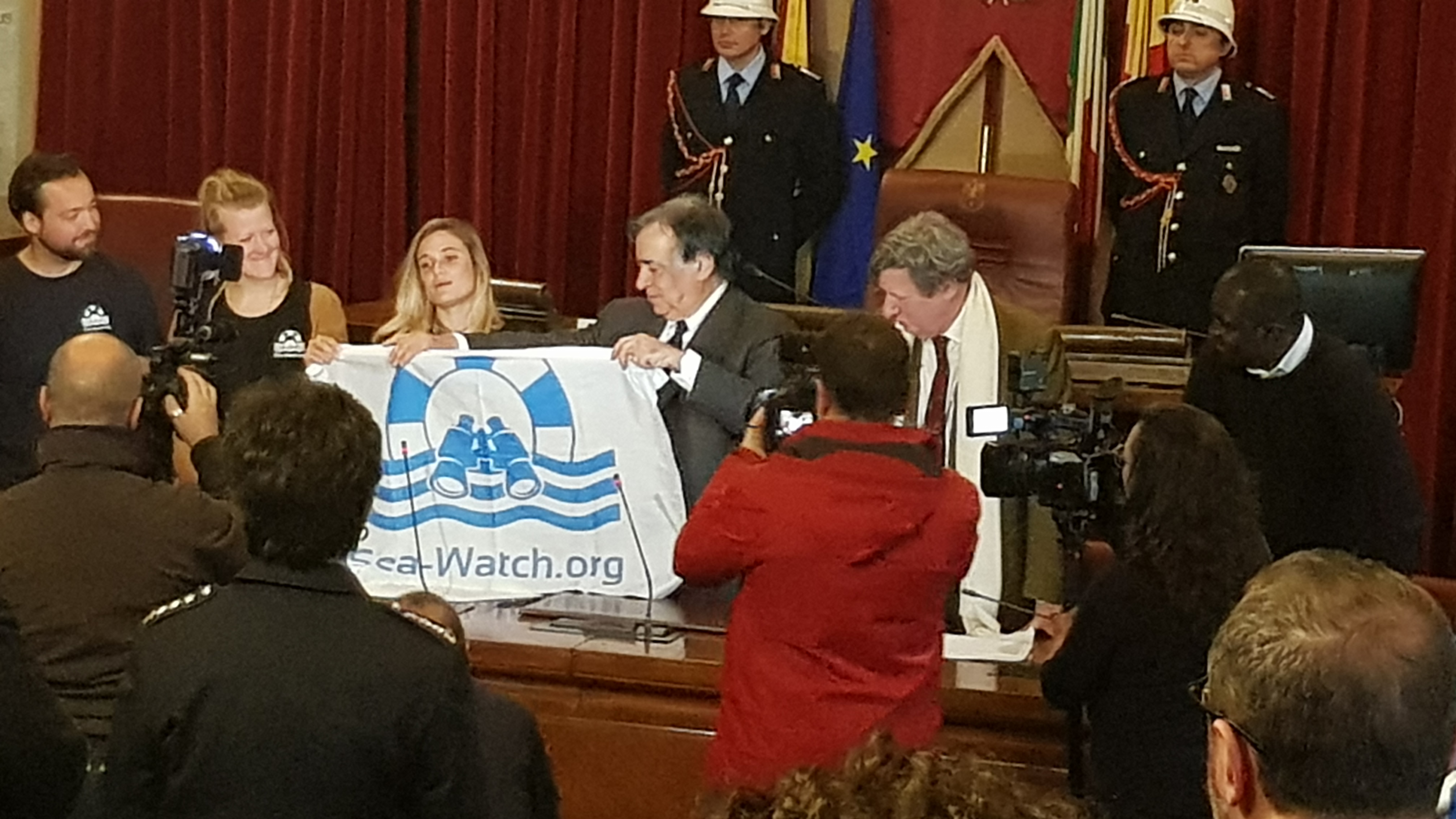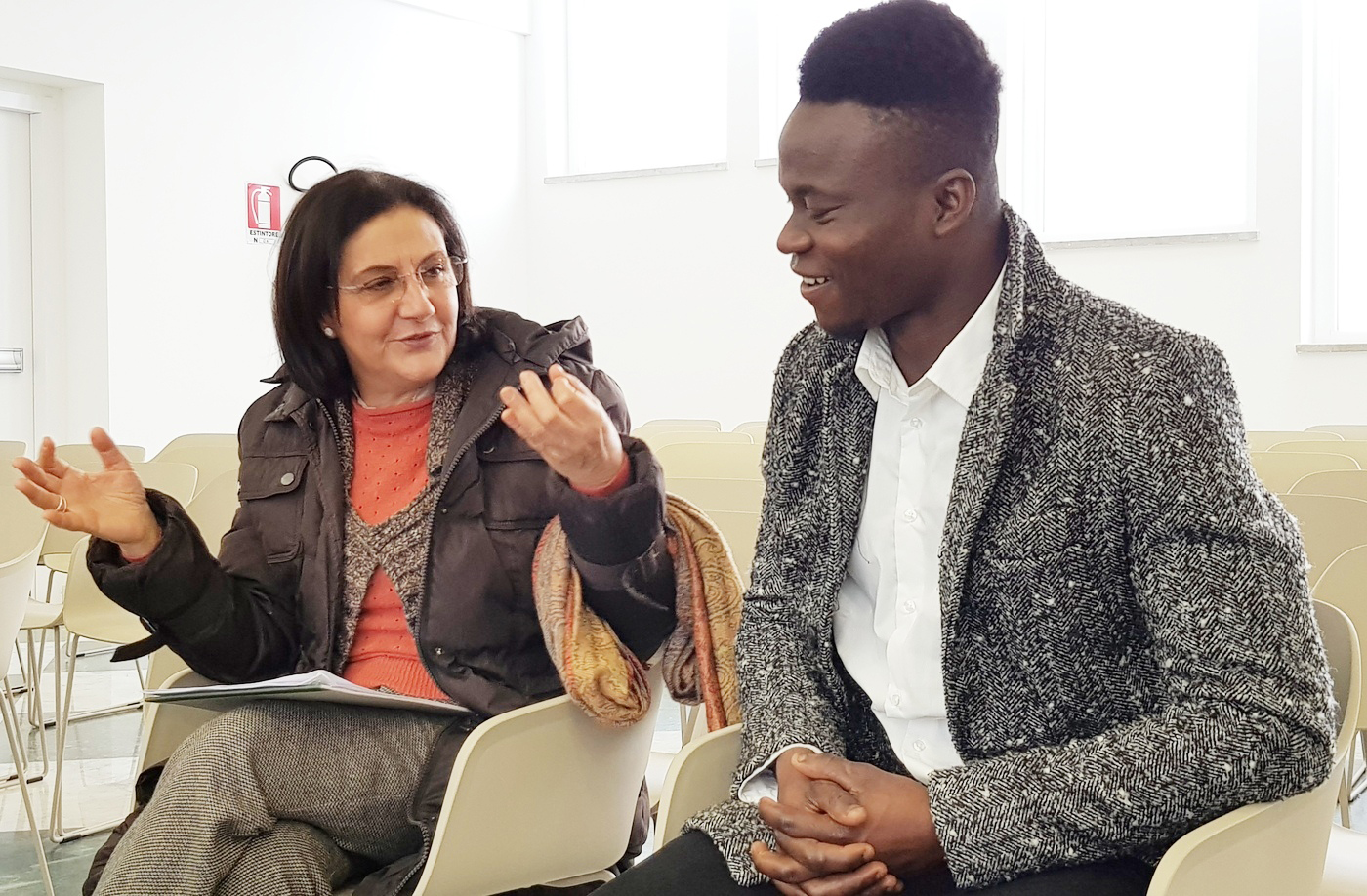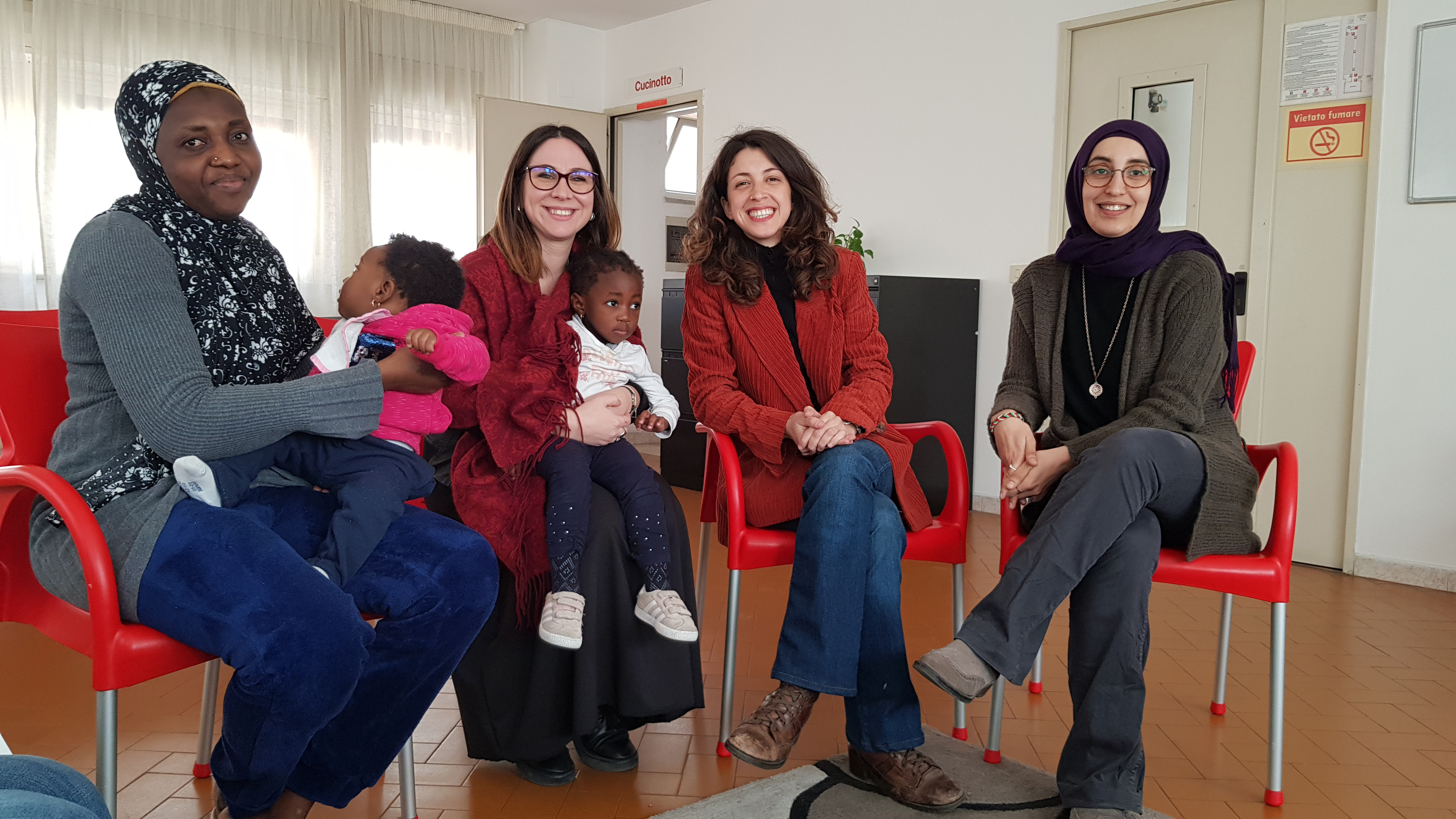A Letter from Burkhard Paetzold, serving as regional liaison for Central and Western Europe and Facilitator of work with the Roma people, based in Germany
March 2020
Write to Burkhard Paetzold
Individuals: Give online to E200392 for Burkhard Paetzold’s sending and support
Congregations: Give to D506900 for Burkhard Paetzold’s sending and support
Churches are asked to send donations through your congregation’s normal receiving site (this is usually your presbytery)
Several individuals and civic search and rescue organizations for refugees and migrants in the Mediterranean have been granted honorary citizenship in a recent ceremony in the City Hall of Palermo, the capital of Sicily, Italy. In his laudatory speech Johannes von Dohnanyi, Dietrich Bonhoeffer’s grandnephew, put the courage and humanity of rescue boat crews, like the ones on board the Sea Watch migrant rescue vessels, into the broader perspective of a global civil rights movement with Palermo in the forefront.
One of the Italian fisherman, who was awarded for his courage, said in his short emotional reply, “When I was charged as a ‘people smuggler’ for saving lives and had to testify in front of a judge recently, it was hard to imagine that I would receive honorary citizenship very soon after.”
His reply seems to mirror the experience of the Waldensian Church and their social justice ventures in Italy. In a century-long process, they have gone from being brutally persecuted by the Roman Catholic church to becoming a well-accepted Christian community in a number of Italian cities and beyond.
The Waldensian pastor of Palermo, Peter Ciaccio, and the coordinator of Mediterranean Hope, Marta Bernardini, were honored guests at the ceremony. In a private conversation, the mayor of Palermo recognized them as much-needed pioneers of civil courage, and praised their commitment to welcoming migrants where others remain silent.
However, the explicit social justice commitment of the Waldensians in Palermo started much earlier—at least 50 years ago—when the Waldensian pastor Pietro Valdo Panascia was brave enough to confront the Sicilian Mafia and their protection racket system and deadly raids, and empowered others to join a courageous project to establish a social center for marginalized people.
Anna Ponente, a social analyst and psychotherapist, is proud of this heritage. She is now the director of the La Noce Diaconal Center, which has about 100 employees, many volunteers and thousands of clients. Twenty-five years ago, she began offering social services for impoverished children and describes how, over the years, the Center has broadened its field of expertise and social engagement tremendously. The Center now works with people with disabilities, visits the elderly in their homes, runs a kindergarten, operates a shelter for mothers and children, and manages a temporary social housing program. The Waldensians have also been instrumental in creating a network of civic organizations that help advocate for the people in those marginalized neighborhoods. Anna chronicles the economic situation of impoverished people, the collapse of the welfare state, and the difficult labor market, as well as the discrepancy between low income and skyrocketing housing rents for many in those densely populated districts.The goal of the Center was initially to empower people to reclaim public space and to give the youth the capacity to live independent lives in a vibrant neighborhood beyond mafia realities. Since then this social fabric has become even more complex with the arrival of ever-increasing numbers of refugees and migrants 10 years ago.
To welcome the stranger as well as welcoming impoverished people from the local community was natural for the Center. Because of the structural and pervasive discrimination against migrants, the Center faced new challenges. The state subsidies for supporting migrant youth are less than half of those for Italian kids. The situation became even worse when the right wing populist Minister of the Interior, Salvini, issued a decree that halted any support and protection for migrants. This is still the depressing reality, even though he is no longer in office.
Social workers like Chiara, Zata and Lilly could tell many stories about sheltering unaccompanied minors, but they would prefer to have the youth tell their stories themselves.
One of these children is Mustafa, who came from West Africa on a long journey through Libya and lost his parents in situations so traumatic that he doesn’t want to talk about them. When he finally arrived in Palermo, he was sent to three different reception centers, one after the other. Two of these centers had to close because they did not meet minimum standards. Finally, he was lucky enough to be referred to the La Noce Center and their unaccompanied minor program “Myrtle.” Here he got help from a social worker and developed a friendship with a volunteer mentor, went to school and got professional training. With great joy and pride, he talks about how he recently found a job as a chef in a restaurant in touristy downtown Palermo.
“I found myself in a situation with no role models for migrants and not knowing what I wanted to do with my life, and I got encouragement to develop personal goals and to study.”
Zata, a young woman who came with her family from Tunisia when she was a baby, tells her story. Even though she has been able to get a residency permit, she is still working on getting Italian citizenship. The La Noce Center has employed her as a translator because she is fluent in many languages. Once she attains Italian citizenship, she wants to teach linguistics as a professor at the University of Palermo. Her presence also testifies to the interfaith character of the Center.
The Mayor of Palermo said in one of his earlier speeches that whoever comes to Palermo is a “Palermito”—a citizen of this city. The Waldensian Center La Noce takes his words to heart and works hard so that his words can become reality.
Burkhard Paetzold
![]() You may freely reuse and distribute this article in its entirety for non-commercial purposes in any medium. Please include author attribution, photography credits, and a link to the original article. This work is licensed under a Creative Commons Attribution-NonCommercial-NoDeratives 4.0 International License.
You may freely reuse and distribute this article in its entirety for non-commercial purposes in any medium. Please include author attribution, photography credits, and a link to the original article. This work is licensed under a Creative Commons Attribution-NonCommercial-NoDeratives 4.0 International License.
